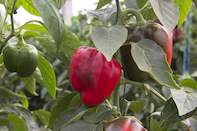
Biotechnology is broadly defined as the use of living systems and organisms to create products for agriculture, industry and medicine.
Humankind has been using biotechnology for tens and thousands of years, starting with the domestication of certain animals and plant species to improve the availability of food. People later also learnt to use certain microorganisms, such as yeasts, bacteria and moulds, to make cheese, yoghurt, bread, wine and beer.
South Africa has a rich history of biotechnology use, with bakeries, cheese-makers, breweries and wineries comparable with the best in the world.
In 2001, however, the South African government launched a National Biotechnology Strategy to ensure the country keeps up with new developments in this field, particularly the development of genetics and genomic sciences, such as the genetic modification of organisms, referred to as third generation biotechnology.
In 2008, Biosafety South Africa (Biosafety SA) was established out of this initiative under the auspice of the Department of Science and Innovation, to facilitate safe and sustainable biotech innovation.
The platform was initially deployed via PlantBio, one of the then biotechnology regional innovation centres established under the 2001 National Biotechnology Strategy to support biotech innovation and commercialisation.
In 2010, PlantBio along with the other biotechnology regional innovation centres, were amalgamated into a national public entity, the Technology Innovation Agency (TIA), in which Biosafety SA still resides.
 Many different ways of farming are used in South Africa, ranging from intensive to extensive and free-range, conventional to organic, biodyn...
Many different ways of farming are used in South Africa, ranging from intensive to extensive and free-range, conventional to organic, biodyn...